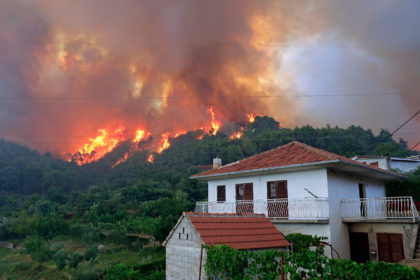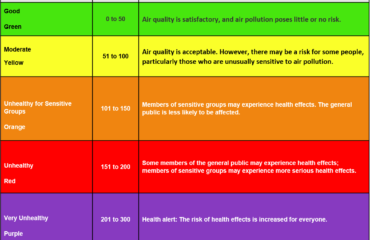
It’s no secret – anyone living in Marin and Sonoma Counties fears wildfires now more than ever. In the last two years, wildfires decimated $11.2 billion worth of damages in the U.S., according to the National Centers for Environmental Information. And California is smack in the middle of Ground Zero.
The top 10 worst wildfires all happened in California. Last year alone in California, 2.6 million acres burned and 3,629 structures were destroyed. Five of the top 20 largest wildfires in California occurred in 2020 – four occurred in 2021. In 2020, California wildfires burned up 4.2 million acres of land and 10,500 structures – killing at least 31 people. Anyone living out West has a right to feel nervous, especially around fire season but really any time of year – last year’s Marshall Fire struck well into winter and was the costliest fire in Colorado’s history.
Climates Impact on Wildfires:
Climate change has irrevocably transformed the nature and danger of wildfires. But here’s some good news – by fire hardening your home and preparing for fire season, you may very well save your home from destruction, even if the fire beats a path right outside your door.
In this video, Fire Science Researcher Jack Cohen displays a remarkably shocking picture – a house completely surrounded by wildfire, as if the home was already part of the flames. The fire was 45 feet from the porch and the photographer could feel pain from the heat. But the house persevered – aside from the scorched trees in the yard, it could have been advertised on Airbnb as the perfect vacation getaway.
Cohen explained the fire-hardening protections that saved the house. The secret to your home surviving wildfires isn’t luck. It’s science.
Fire hardening also known as home hardening has a remarkable return on investment – every $1 spent on fire protection can save at least $6 in emergency rescue and recovery later. The goal of wildfire protection is not to just fireproof your home and property, but to limit its ability to act as a fuel source.
Here’s how to fire harden your property and protect your home from wildfires in Marin and Sonoma Counties.
Create a Perimeter of Defensible Space
To prepare your home for wildfires, you need to maintain a defensible space around your home that’s free of flammable fuel.
Depending on the fire risk, your house should have a perimeter of defensible space of at least 30 feet but perhaps as much as 100 feet from the home.
Zone 0:
Is the ember-resistant zone and covers about five feet around the home. It requires the most stringent reduction in wildfire fuel – all dead and dying grass and weeds, plants, shrubs, and vegetative debris should be removed. Roofs, gutters, decks, and stairways should be completely free of pine needles, leaves, and organic debris.
Zone 1:
Extends 30 feet from the house. All dead plants, grass, and weeds should be removed. Branches that hang over your roof should be cut down. Trees should be trimmed and kept at least 10 feet apart from other trees. All trees and shrubs should be kept at a safe distance from flammable wood piles, lawn furniture, or swing sets.
Zone 2:
Extends 30 feet to 100 feet from the house. Grass should be cut to a maximum height of four inches. Eliminate all fuel ladders – vegetation a fire can use to spread to the top of a tree or home. Make sure all tree branches are trimmed at least six feet from the ground.
Wood stacks and propane tanks should be kept at least 30 feet from the house. Keep in mind that anything organic is a fuel source. Mulch can easily lead to burning embers that spread the reach of a fire. It should be kept at least five feet from the house with a border of gravel or stones. Wood fences should be separated from the house with a masonry or metal barrier. High-resin trees like juniper and pine can be especially dangerous. Any trees and plants near your home need to be watered regularly, especially during the dry season.
Equip Your Home with Fire Hardened Protection
Vulnerable openings like windows and doors should be fire rated. Vents should be protected with mesh screens that prevent burning embers from circulating. Gutters and downspouts should be made of noncombustible material, metal instead of vinyl, and should be covered with a metal leaf guard and cleaned regularly.
Create a Plan and Be Honest About What You Have Time to Do
Without follow-through, the best fire protection plan is worthless. Wildfires can spread with little warning and won’t wait for you to clean the gutters you’ve been procrastinating for weeks.
Fire protecting a home requires meticulous, consistent care. But trees will continue to drop pine needles and leaves. Grass continues to grow. Plants need watered or soon become kindling. Any work you do on your home is meaningless in a few weeks if you don’t stay on top of it.
It’s critical to develop a fire protection plan and be honest about what you actually have time to do.
That’s why we recommend our subscription-based fire-hardening plan to protect your home from wildfire. We will make a professional fire hardening assessment of your home and provide a detailed estimate for all recommendations. Then we will implement the plan to ensure your home is completely fire-protected down to the last detail.
On a monthly basis, we’ll clear any debris from your roof, gutters, stairs, and yard to ensure your home is protected.
Don’t wait for the wildfire to come to you. Be ready.
Proactively protect your home from forest fires with a professional fire-hardening plan that gets it done. At Home Stewards, we protect homes from forest fire in Marin and Sonoma Counties.
Get started by scheduling a fire-hardening assessment today.



